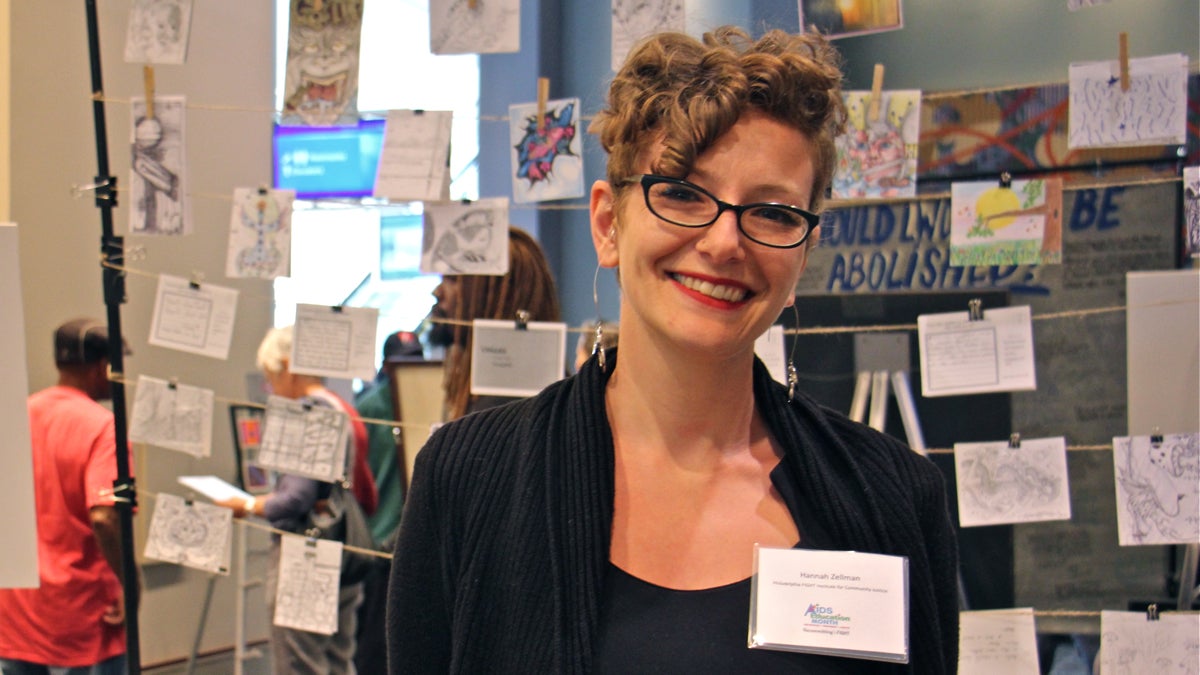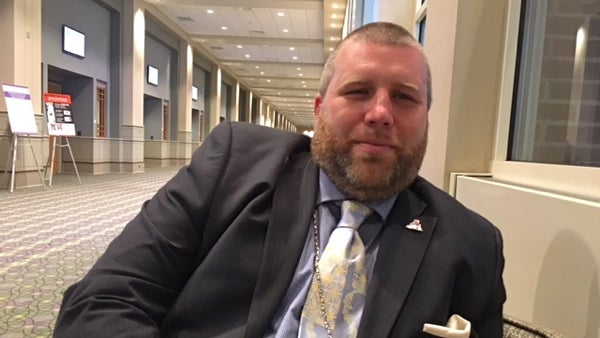Healthy inmates can help create a healthier community

Hannah Zellman of Philadelhia FIGHT Institute for Community Justice organized the Beyond the Walls summit at the Pennsylvania Convention Center. (Emma Lee/WHYY)
After serving their time, today’s inmates will return to their homes and community.
In essence, prison health becomes public health, said Hannah Zellman, program director with Philadelphia FIGHT, the nonprofit that hosted Wednesday’s “Beyond the Walls: Prison Healthcare and Reentry Summit.”
The annual summit began as a tiny conference focused on the intersection of HIV/AIDS and incarceration. The conference still considers that issue in depth — but it has expanded to 48 workshops with more than a thousand participants. This year, workshops ranged from reversing an opioid overdose to dealing with hepatitis C to prison yoga.
“We have corrections officers and prison health care providers talking with community health care providers and people who’ve been on the inside … kind of all sitting together and learning together,” said Zellman.
 Chris Kimmenez is a formerly incarcerated pastor who is HIV positive. He lives and preaches in Philadelphia and works with people in re-entry. (Anne Hoffman/WHYY)
Chris Kimmenez is a formerly incarcerated pastor who is HIV positive. He lives and preaches in Philadelphia and works with people in re-entry. (Anne Hoffman/WHYY)
Chris Kimmenez, who led a workshop on spiritual trauma at the gathering at the Pennsylvania Convention Center, is a pastor who went to prison in the 1990s. He’s also HIV positive.
“Good treatments for HIV had just come out, and, of course, those of us in prison weren’t getting them yet,” he said.
His symptoms weren’t overwhelming and he never developed AIDS, but he said the prison environment made staying healthy difficult.
These days, in his work with former inmates re-entering their communities, he’s noticing more people coming home with diabetes and other chronic health issues that have worsened in prison.
Kimmenez said most inmates are getting what they need from a medical standpoint — but they’re not getting what they need for wellness.
“The opportunity to exercise, the opportunity to get more nutritious food, that’s what’s not quite on the menu,” he explained.
And that can make a big difference once they are beyond the prison walls.
“We have to think of these things as really porous systems,” Zellman said. “Folks in the community are going inside, folks inside are coming home. And so I think we need to have an approach where we have health care infrastructure and investment from all sides of the walls.”
It’s nothing less than a critical public health imperative, she said.
This story is part of The Reentry Project, an unprecedented collaboration among 15 of Philadelphia’s general interest newsrooms and community and ethnic media organizations to reveal and investigate credible responses to the challenges of recidivism and re-entry. You can find more stories from other partners in the project at https://thereentryproject.org/
WHYY is your source for fact-based, in-depth journalism and information. As a nonprofit organization, we rely on financial support from readers like you. Please give today.

